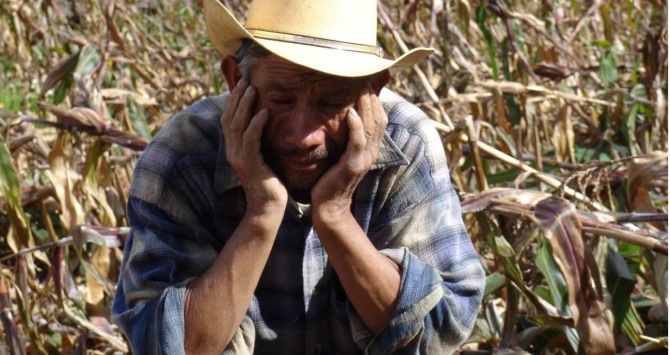As part of the MSc in International Development and Humanitarian Emergencies and the MSc in Development Studies degree programmes, students have the opportunity to lead a consultancy working with a range of clients from the humanitarian and development sectors. Students Franziska Basse, Ellie Chesshire, JP Fisher, Jess Lyga and Irem Simsek reflect on their experiences working with the Humanitarian Leadership Academy (HLA), an initiative of Save the Children UK (SCUK), to explore how humanitarian learning was impacted by the COVID-19 pandemic.

This exciting part of the degree programme gave us an insight into working with an international humanitarian organisation. Our consultancy group, which included five students with diverse academic and professional strengths, was paired with HLA to examine if and how the usage of one of their training programmes, the ‘Humanitarian Operations Programme’ (HOP), changed after the onset of COVID-19. This was linked to a broader question that faces the humanitarian community in the wake of COVID-19: to what extent has the pandemic impacted the access to and use of learning for humanitarians, strengthening their capacity as a result.
In cooperation with HLA, we first agreed on the parameters and objectives of the research. This allowed us to take all team members’ strengths into account, including academic research and previous humanitarian work experience, while also accounting for the needs of the project.
The consultancy allowed us to channel our degree’s theoretical knowledge into practical recommendations for the client, improve our own research skills through mixed methodology analysis, and closely work with experts in the humanitarian sector. While our topic was challenging and the ongoing pandemic restricted our ability to coordinate, we were able to work through it all as a team and gained a considerable amount of knowledge along the way.
The close cooperation with HLA was particularly insightful in exploring the functioning and programming of the humanitarian and development sector as it adapted to the challenges of COVID-19. We corresponded regularly with the HLA team throughout the consultancy, meeting approximately once a week online. This was particularly helpful in a year in which research and communication were difficult due to the pandemic.
The project required coordination of different methodologies to answer our research question. We started by conducting an extensive literature review, which considered key academic debates surrounding localisation, capacity strengthening, and training from numerous sources. From there on, we analysed demographic and programme completion data provided by HLA to gain overall insights of trends, patterns, and key issues for the training programme. We also launched a survey and conducted a number of interviews to get more specific insights into the training programme’s accessibility and usage from humanitarian actors in the field.
The findings of our research were interesting both from an academic perspective and to help further inform HLA’s programming. We found that there was an extremely significant increase in the number of learners accessing HLA’s HOP training programme during the pandemic – a pattern that hints at broader trends of increased access to online learning opportunities during the pandemic. As research around COVID-19 and humanitarian learning continue to emerge, we feel that the implications of this finding are significant. Specifically, there seems to be an appetite for learning opportunities among humanitarians, perhaps spurred by all the operational roadblocks that have complicated the humanitarian response during the pandemic.
In May 2021, we submitted and presented our findings to HLA/SCUK and LSE. After our project presentation, HLA asked us to give an additional presentation for members of their senior management team. The findings from our research contributed to discussions about the development of additional online learning resources and capacity strengthening initiatives within HLA/SCUK. We are extremely thankful to LSE for this opportunity and the valuable learning experience that we gained from it, as well as to HLA/SCUK for supporting us throughout this exciting project.
Reflections
“This consultancy has been a highlight of my year at LSE. It was great to apply what I’d learned as part of my degree to a practical experience. Additionally, I feel that I’ve learned so much from my other group members, and I’m happy to have had the chance to grow as part of a team.” – Jessica Lyga: International Development and Humanitarian Emergencies
“In what has been such a strange, isolated year, it has been so lovely to work on this consultancy project with like-minded, skilled people. I have learnt so much from all the other group members and it has been great to be given a taste of what it might be like working for an INGO. It has been an invaluable experience and I will miss working with the group and with Save the Children UK!” – Ellie Chesshire: International Development and Humanitarian Emergencies
“Working with and learning from the HLA team at SCUK was an absolute treat, especially during this tumultuous year. The consultancy project was one of the reasons I chose to pursue this degree at LSE and it did not disappoint. My team members provided unique insights and I look forward to staying connected with them as we enter the workforce!” – JP Fisher: International Development and Humanitarian Emergencies
“I’m thankful to have had the chance to contribute to this report together with a wonderful group and the HLA team at SCUK. While providing a chance to combine theoretical knowledge with practical, action-oriented research, this project also allowed me to continue to grow and learn as part of an amazing team. This consultancy project has definitely been one of the highlights of my studies at LSE!” – Franziska Basse, International Development and Humanitarian Emergencies




